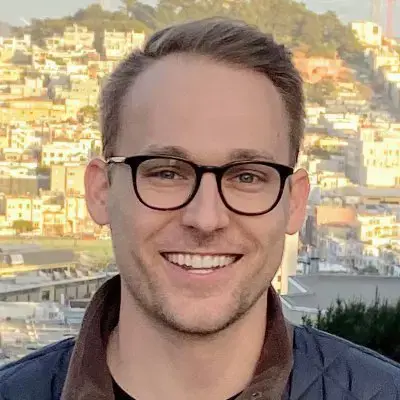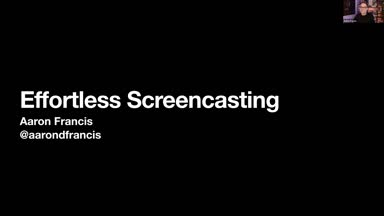Effortless Screencasting
 by
Aaron Francis
by
Aaron Francis
You don't have to be an expert filmmaker or videographer to get started with screencasting. This session is perfect for anyone with something to say. Join us to learn some of the tips and tricks that go into creating a high-quality, polished screencast.
Recording

Thursday, October 26 2023
5:30 PM
on